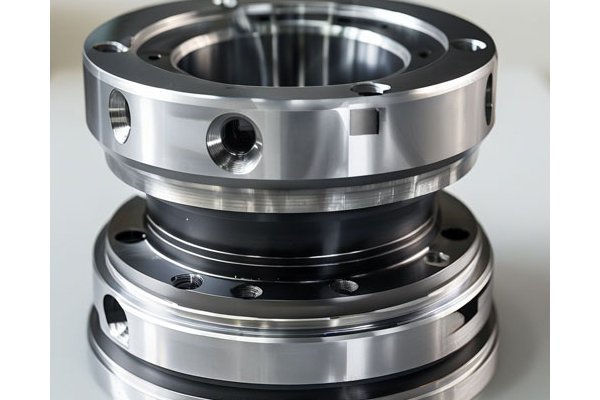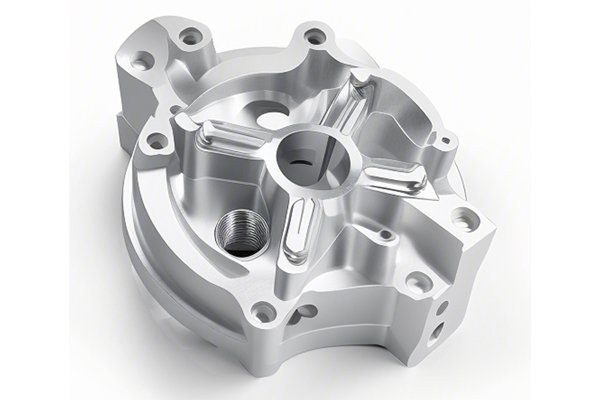*
Did you know that the global CNC machining market is projected to grow from around $63.58 billion in 2020 to $100.4 billion by 2028, at a CAGR of 5.72%? A significant contributor to this growth is the increasing demand for precision components across various sectors, including automotive, aerospace, and consumer goods. At the forefront of this revolution is CNC machining for custom plastic designs.
Have you ever wondered why many manufacturers are moving towards CNC machining for plastic parts instead of traditional methods? This blog will delve into the numerous benefits CNC machining offers for custom plastic designs, and it will explore how it is transforming the manufacturing landscape by providing detailed solutions to common industry challenges.
Chapter 1: Understanding CNC Machining
Before we explore the specific benefits of CNC machining in custom plastic designs, let’s first establish what CNC machining is and how it works.
1.1 What Is CNC Machining?
Computer Numerical Control (CNC) machining refers to the automated control of machining tools, such as drills, lathes, and mills, through a computer. This technology uses computer software to manipulate machine tools accurately, allowing for a high degree of precision in manufacturing processes.
1.2 The CNC Machining Process
The CNC machining process typically involves the following steps:
By automating these steps, CNC machining provides consistency, speed, and accuracy, essential for producing high-quality custom plastic parts.
Chapter 2: Why Choose CNC Machining for Custom Plastic Designs?
CNC machining offers numerous advantages over traditional manufacturing methods. Here are some key benefits:
2.1 Precision and Accuracy
CNC machines can achieve tolerances as tight as ±0.001 inches, making them ideal for applications requiring intricate designs and precise dimensions. This level of accuracy is particularly important in industries such as medical devices, aerospace components, and electronics.
2.2 Flexibility in Design
One of the remarkable features of CNC machining is its ability to create complex geometries and intricate designs. Unlike traditional machining processes, CNC allows for rapid iterations, enabling designers to modify components without substantial delays. This flexibility is essential for custom plastic parts, where design specifications often evolve during the development phase.
2.3 Reduced Waste
CNC machining systems utilize digital designs, ensuring that material is used efficiently. Unlike subtractive processes that might cut too much material away, CNC machining minimizes waste by accurately following design specifications, providing an eco-friendly manufacturing solution.
2.4 Cost-Effectiveness
Although the initial setup costs for CNC machining can be higher than traditional methods, the long-term cost savings reduce the overall expenses associated with manufacturing. Mass-producing custom plastic parts using CNC machining can lower per-part costs, making it a rational choice for high-volume production runs.
2.5 Speed and Efficiency
With the ability to operate continuously and without breaks, CNC machines significantly increase production speed. Once programmed with G-code, a CNC machine can produce parts faster than manual processes, which is crucial for meeting tight deadlines.
Chapter 3: Applications of CNC Machining in Custom Plastic Design
The versatility of CNC machining allows for its application across various industries. Let’s explore some of the key sectors where CNC machining for custom plastic designs is making a significant impact.
3.1 Automotive Industry
CNC machining plays a critical role in creating various plastic components, from dashboard covers to intricate air filter housings. With stringent quality standards in this sector, CNC machining ensures that each piece is produced to the exact specifications required for optimum performance.
3.2 Medical Devices
The medical industry benefits greatly from CNC machined plastic components due to strict regulations surrounding isotropy and cleanliness. CNC machining allows for the production of parts like surgical instruments, cases for medical devices, and disposable components with exact tolerances and surface finishes.
3.3 Consumer Products
From electronics housing to customized packaging, CNC machining is prevalent in developing consumer products. Custom plastic designs can appeal to a specific target market while ensuring consistency in quality and reliability.
3.4 Aerospace
Due to the high-performance requirements and safety regulations in the aerospace sector, CNC machining offers unparalleled precision. Lightweight plastic parts made through CNC processes contribute to asset durability and improved fuel efficiency in aircraft.
Chapter 4: The Materials Used in CNC Machining for Custom Plastic Designs
Selecting the appropriate material is vital for achieving a successful outcome in CNC machining. Here are some commonly used plastic materials:

4.1 Polycarbonate (PC)
Polycarbonate is known for its high impact resistance and optical clarity, making it suitable for applications such as safety glasses, eyewear, and structural components.
4.2 Acrylonitrile Butadiene Styrene (ABS)
ABS plastic is known for its toughness and resilience, making it ideal for items requiring toughness, from household goods to automotive parts.
4.3 Nylon
With excellent wear resistance and strength, nylon is commonly used in CNC machining for applications such as gears, bearings, and bushings.
4.4 Polyethylene (PE)
Polyethylene is widely used for its chemical resistance and low friction properties, making it suitable for containers, tools, and automotive parts.
4.5 Polystyrene (PS)
Lightweight and easy to mold, polystyrene is ideal for producing custom plastic parts used in consumer products, especially in packaging and display applications.
Chapter 5: Challenges in CNC Machining for Custom Plastic Designs
Although CNC machining offers many benefits, it is not without its challenges. To ensure successful outcomes, manufacturers must address several key issues:
5.1 Material Limitations
Certain types of plastics can be challenging to machine due to their properties. High-temperature plastics may require specialized tooling, while soft plastics can be prone to deformation during processing.
5.2 Tool Wear
Cutting tools in CNC machines can wear down over time, leading to reduced quality and accuracy in parts. Regular maintenance and tool replacement schedules are essential for sustaining consistent manufacturing quality.
5.3 Programming and Setup Complexity
CNC machines require precise programming, which might involve a steep learning curve for operators. Adequate training is essential to maximize machine productivity and minimize errors.
Chapter 6: Best Practices for CNC Machining of Custom Plastic Parts
To achieve optimal results in CNC machining for custom plastic designs, manufacturers should follow these best practices:
6.1 Design for Manufacturing (DFM)
Incorporating DFM principles during the design phase can streamline the manufacturing process. This includes designing features that are easy to machine or avoiding overly intricate designs that may lead to excessive waste or machining time.
6.2 Regular Maintenance
Regular maintenance schedules for CNC machines can prolong their lifespan and ensure consistent performance. Monitoring tool wear and replacing tools as needed will prevent disruptions in production.
6.3 Continual Training
Investing in ongoing training for operators will enhance their understanding of CNC processes and programming, allowing for improved performance and increasing productivity.
Chapter 7: Future Trends in CNC Machining for Custom Plastic Designs
As technology continues to evolve, CNC machining is poised for exciting changes. Let’s explore several emerging trends that are shaping the future of custom plastic designs:
7.1 Automation and Industry 4.0
The integration of automation and IoT (Internet of Things) technologies will increasingly streamline CNC machining processes, enabling manufacturers to achieve real-time monitoring and predictive maintenance.
7.2 Advanced Material Development
The introduction of new materials with superior properties will enhance the capabilities of CNC machining. Biodegradable plastics, for instance, are gaining attention in various sectors and will need innovative approaches in production.
7.3 Enhanced Software Technology
As CNC programming software continues to improve, machine operators will have access to more sophisticated tools that facilitate easier design modifications and quicker production times.
CNC machining for custom plastic designs presents a myriad of benefits, including superior precision, design flexibility, and production efficiency. Understanding the intricacies of the manufacturing process, material selection, and industry applications can significantly enhance the quality and reliability of produced parts.
In today’s manufacturing landscape, embracing CNC machining not only addresses the challenges faced but also positions businesses for future growth. As technology continues to evolve, those who invest in CNC machining can remain competitive while meeting the ever-changing demands of various industries.
This blog emphasizes the importance of CNC machining in the production of custom plastic components, providing readers with valuable insights and solutions. Overall, the adoption of CNC machining is critical to the success of modern manufacturing—an essential consideration that businesses should review thoughtfully to enhance their operational strategy.






